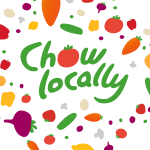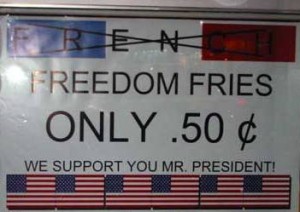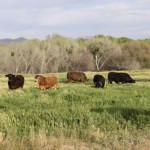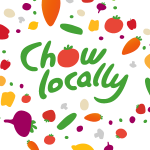(Chris Wharton and Derek Slife of Chow Locally write a bi-weekly column on eating, living, playing and everything else local. Be sure to say hi to them on Saturdays at the market.)
It’s no major revelation to point out that our government currently suffers from dysfunction and division. Even so, I think it’s interesting to take a close look at why the division exists and to see how it directly relates to food in the US. If you weren’t aware, food is wildly politicized in every way (remember Freedom Fries?). And often, the politics track along the same partisan lines as other major issues.
Underlying most debates between Democrats and Republicans, liberals and conservatives, the left and the right, is the extent to which government should be involved in our lives. Most agree that the federal government should be directly and heavily involved in major national priorities, like defense or international relations. After that, consensus goes away. And so we fight over how big the government should be and how much we should pay in taxes for its size.
When it comes to food, the same debate rages. How much should the government be involved in our food choices? Most probably agree that the government should protect the food supply (the FDA therefore can shut companies down and prosecute those who put products onto the market that make us sick). But what about products that might make us sick, but don’t necessarily do so? For instance, consistent intake of foods that contain high levels of trans fats is associated with increased risk for cardiovascular disease. Trans fats have no redeeming nutritional qualities, and their impact on chronic disease exceeds that of other harmful food ingredients. Well, some municipalities and states have begun regulating use of trans fats in fast food products. As a result, chain restaurants of a certain size cannot serve foods containing trans fats in places like New York City and California.
This is where things get sticky, because now regulation actually affects consumer choice (what if I want to eat a food with trans fat because I think it’s tastier?). And this is where the right can get riled. Something that might be good for public health can at the same time limit personal choice. It’s the same set of arguments one might make regarding wearing a seat belt or a helmet.
Despite the rancorous debate we all recently witnessed over the debt ceiling, it might be possible to find a happy medium between big and little government, and more and less regulation, at least when it comes to food. We can do it through ‘healthy defaults.’ First proposed by Kelly Brownell, a researcher at Yale University, the idea of healthy defaults suggests making the healthy food choice the easiest choice. Short of taking away unhealthy foods, this concept would mean, for example, making bottled water or diet sodas cheaper and more prevalent in vending machines compared to full-calorie sodas. Or making a salad the default side as part of a restaurant meal rather than fries. In other words, with healthy defaults we manipulate our environment to encourage healthier choices rather than mandating healthier choices or banning unhealthy ones.
This option still doesn’t appease everyone, especially those food and beverage companies whose sales might be affected. But I back it. If we hope to establish social norms that help support healthy eating, we need a food environment to match. Couple a healthy environment with strong nutrition education, and we might actually make some headway in improving eating behaviors.
So what are some ways we can create healthy defaults in our food environment? To start, we work more on promoting and buying local foods. When you go to farmers’ markets, buy into community supported agriculture programs, or even garden at home or in your community, you usually end up filling your kitchen with more whole, healthy, unprocessed foods, which supplant the less healthy processed foods you might otherwise have bought at the grocery store. That leads to healthier eating. And the more we support local and regional food systems, the more we build a market for the foods they produce. That will lead to more businesses offering more local food options, creating (by default) a healthier food environment.
So go local and return to whole foods. The more you do that, the more we build a marketplace filled with healthy defaults.
About the Author
 Derek Slife is Co-Founder of Chow Locally, an organization dedicated to breaking down the barriers between you and your access to healthy, sustainable, local food grown by farmers in your area. They offer a new approach to connecting local farms to local tables, via deliveries to the Phoenix Public Market. Visit Chow Locally for more.
Derek Slife is Co-Founder of Chow Locally, an organization dedicated to breaking down the barriers between you and your access to healthy, sustainable, local food grown by farmers in your area. They offer a new approach to connecting local farms to local tables, via deliveries to the Phoenix Public Market. Visit Chow Locally for more.







